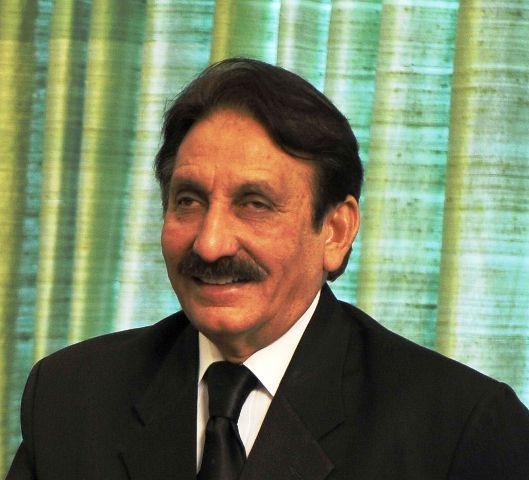Days long past: Nobody can now abrogate the Constitution, says CJP
Says shortcomings in the judiciary’s performance can be overcome with cooperation.

Chief Justice Iftikhar Mohammad Chaudhry. PHOTO: FILE
Chief Justice Iftikhar Muhammad Chaudhry has said that days when the Constitution was violated are over, and that lawyers had foiled all efforts made at derailing the democratic process.
Addressing lawyers at the inaugural ceremony of a Judicial Complex at Daska in Sialkot on Saturday, the chief justice said that the dignity of the judiciary will be protected, no matter what the price.
“Gone are the days when the Constitution was abrogated,” he said, adding that lawyers and civil society would not let any efforts to abrogate the Constitution succeed in the future.
Talking about the lower judiciary, the chief justice said it was delivering despite meagre resources at its disposal.
“Our district judiciary is trying its level best to impart justice despite limited resources, yet the importance of infrastructure cannot be overlooked,” he said.

“Shaping the buildings has a great nexus with shaping the destiny of nations.”
Justice Chaudhry also said that it was due to the struggle and sacrifices of the bench and the bar that the nation was able to have an independent judiciary.
“The judiciary is free in dispensing justice and safeguarding the fundamental rights of citizens without fear or favour,” he remarked.
However, the chief justice acknowledged that there were certain drawbacks in the system which could only be resolved through cooperation.
“We may have certain shortcomings in our performance but with the support and cooperation of the legal community, we would certainly be able to overcome the same,” he stated. He conceded that expectations of the public from the judiciary were high.
“People acknowledge your unprecedented role in maintenance of rule and restoration of democracy in the country,” he said.
The chief justice also confessed that the backlog of cases was a big hurdle in the way of expeditious justice.
The number of cases pending before the district judiciary is much higher than the Supreme Court and high courts.
Ninety per cent of the cases are pending before the district courts and the remaining 10 per cent are pending before the superior judiciary.
In the past, many exercises have been carried out to remove the complexities of procedures prevalent in courts. In Pakistan, many commissions were constituted to resolve the issues of backlog and procedural complexities. But the desired results could not be achieved.
Published in The Express Tribune, October 13th, 2013.



















COMMENTS
Comments are moderated and generally will be posted if they are on-topic and not abusive.
For more information, please see our Comments FAQ